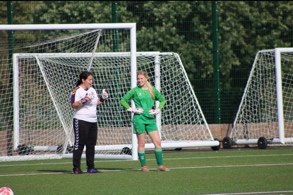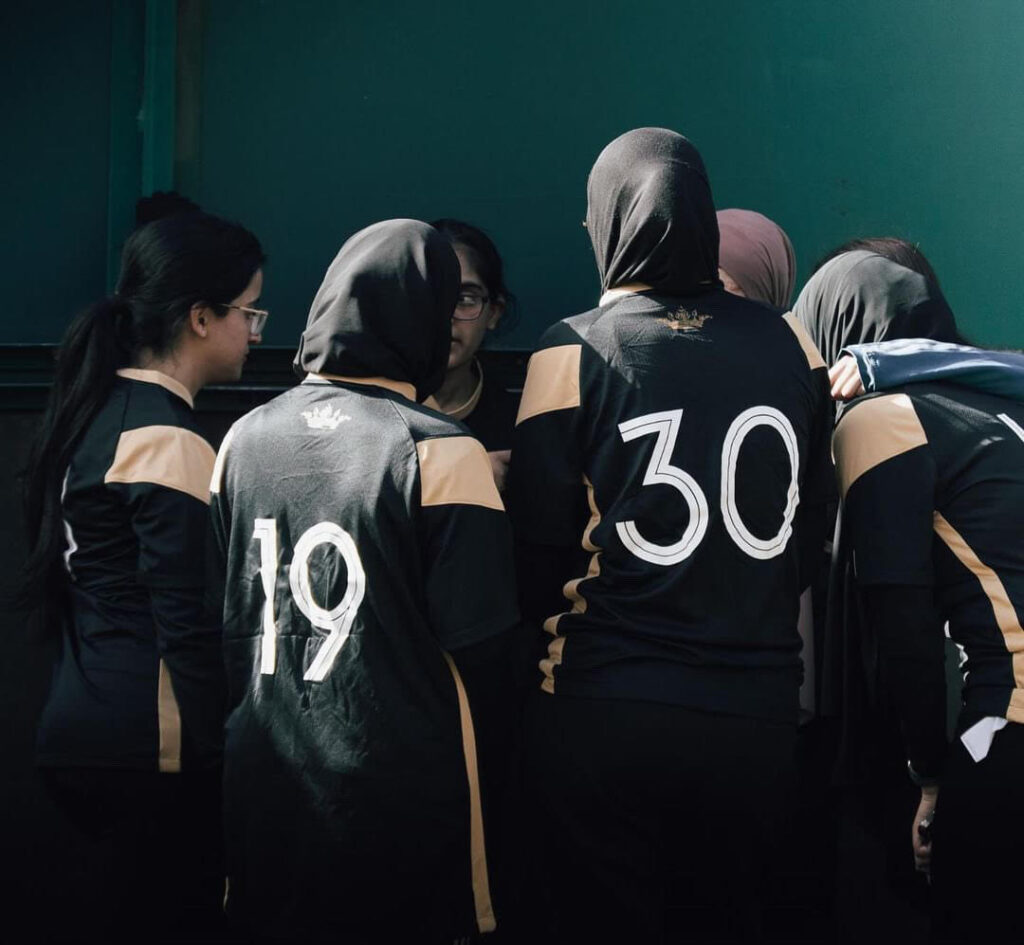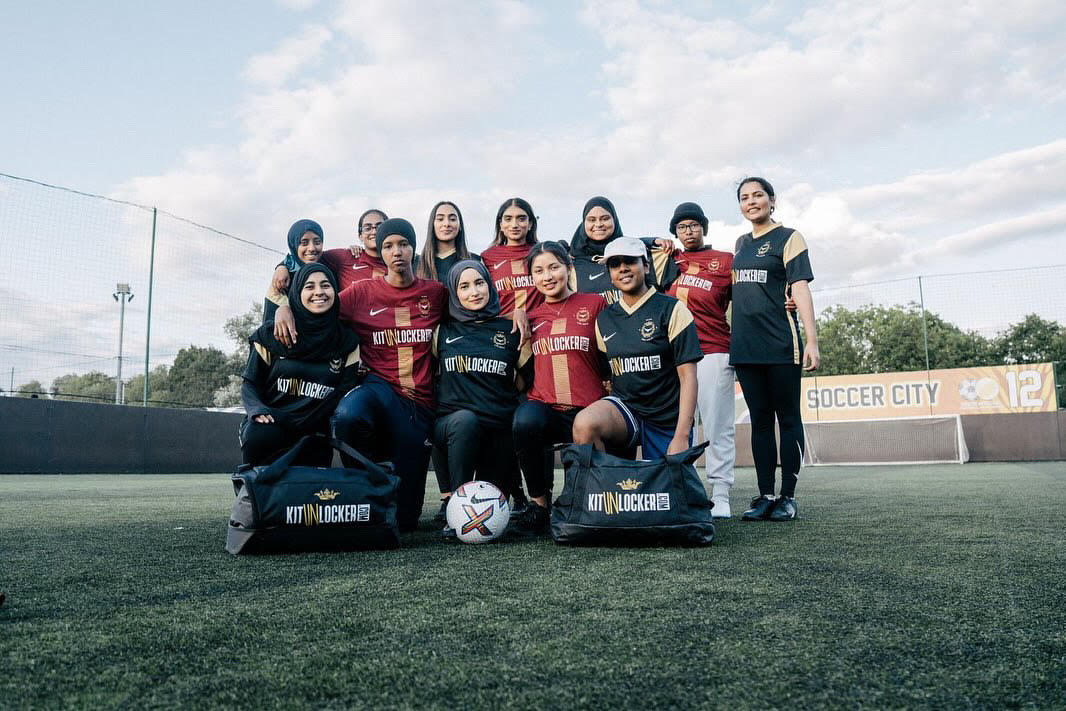Over half of female football coaches say they have considered quitting the role due to sexism on and off the pitch.
This comes as the prospect of pursuing a non-playing career in football for women continues to bring the unwelcome additions of discrimination and exclusion.
In March, the Kick It Out campaign group revealed that four in five women football coaches had been subject to some form of sexism while in a coaching environment and 54% of those polled saying the experience made them consider leaving the profession.
This abuse is a contributing factor to the lack of female participation in coaching, with less than half of head coaches in women’s football being female at the start of this season.
Female under-representation in non-playing roles in football is prevalent, with the FA revealing as of August 2023 that women make up only 8% of referees operating in men’s football, and just 2.5% of officials working in the professional game.
Stefany Alibrando Martin is UEFA licenced and currently works as the goalkeeping coach for Coventry City Women FC. She is also a qualified FA referee on the men’s football pathway.
Alibrando Martin currently works in football part-time with ambitions of becoming a full-time coach and says that she is fortunate to have been supported by her colleagues, but the absence of female representation throughout her career has been all too apparent.
She says: “When I was an assistant coach at a player development centre of a professional team, there wasn’t a single female head coach or even assistant coach for over 30 development teams.
“It has been a long wait for an opportunity to work as a coach and referee, but the changes are happening and now is the right time.”

The FA pledged in 2020 to boost the percentage of women in head coaching roles in women’s football from 65% to 75% by 2024. However, as of 2023 this number has actually decreased to just 46%.
The number of registered female referees has risen from 1,477 to 2,508 in the same period, but the percentage of these referees progressing through the FA’s women’s promotion pathway has plateaued at 3%, some way short of their 2024 target of 7%.
A three-year plan commenced this season to develop the women’s refereeing pathway to provide more suitable opportunities for new officials in an effort to prevent refs from quitting the profession, including due to sexist abuse.
From her experiences of refereeing men’s football, Alibrando Martin says: “Coaches and players are more critical of female referees than male referees, making comments that they are not confident enough and that they don’t make decisions with conviction.
“I do feel that some coaches or parents tend to try and persuade my refereeing decisions, but I’m not sure how much of this is to do with me being a woman.”
Misogynistic attitudes within football continue to hold back women trying to make a difference at all levels of the game.
Lubna Azam is the co-founder and coach of grassroots women’s team RARA AVIS FC, and describes the obstacles faced trying to create an inclusive environment for women in a male-dominated game.
She says: “We’ve had kids jeering and making silly comments when we’ve been playing on community pitches, but we have spoken to them and they were apologetic. We’re all about educating and changing attitudes.
“We’ve also had the old ‘make me a sandwich’ comment from a random person stalking our social media.”

RARA AVIS’ experience is far from an anomaly, with Kick It Out’s report finding that 57% of female coaches felt they were spoken to differently based solely on their gender.
The Leicester-based team have also faced difficulties receiving equal treatment to their male counterparts when it comes to resources.
“There is obviously more funding that goes into men’s football than women’s football and therefore more opportunities and venues, so we’ve had issues when it comes to booking pitches and winter training facilities. Finding a qualified female coach for the team also isn’t as easily accessible.”
However, Azam remains committed to providing a place for female footballers to not just exist but thrive, having completed introductory coaching training with the help of community football club Leicester Nirvana.
She says: “Leicester Nirvana pitched the idea of coaching to us, which has opened up a whole new world where we’ve been able to share our work with other coaches and hear of their experiences.
“With the coaching training and skills we’ve picked up, we are on our way to inspiring other players to become coaches and inspire girls to get into football.
“We’ve had people tell us they wished they had had the opportunities we offer so it’s really humbling and extremely gratifying.”
Kick It Out is hoping its most recent research can accelerate the push for better safeguarding of women working in non-playing roles in football, with Chief Operating Officer Hollie Varney saying that football needs to start “taking sexism seriously – We encourage those who experience sexism in coaching or throughout the game to report it to us.”
However, the ever-presence of misogyny throughout all aspects of society means it is arguably unfair to expect the solution for this marginalisation within football to come solely from the sport itself.
Annie Zaidi is a UEFA licenced coach who has been awarded a British Empire Medal for her services to football coaching and has held coaching roles with the FA, West Bromwich Albion and Solihull Moors.
Zaidi, who currently works with Coventry Sphinx FC, said: “With all due respect to Kick It Out, this narrative has been repeated so many times.
“Football is no different to society, sexism happens every day in all industries so we can’t put the microscope on football when the rest of society is in disarray.”
Looking to the future, Alibrando Martin says: “I can see football and referee associations working hard to support and increase female representation even in senior positions.
“Just as in any other profession, provided that the person has the technical skills and competence, there shall be no difference.”




